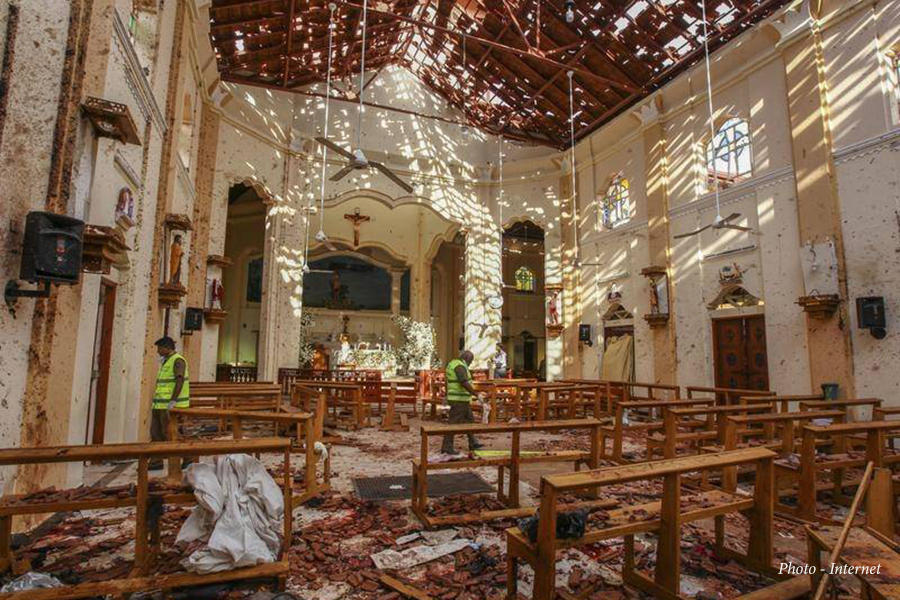Christian Conference of Asia denounces the devastating bomb blasts in Sri Lankan churches on Easter Sunday
 St. Anthony's Shrine, Kochchikade church after an explosion in Colombo, Sri Lanka
St. Anthony's Shrine, Kochchikade church after an explosion in Colombo, Sri Lanka
“The devastating bomb blasts that ripped through Sri Lanka including three churches holding Easter services on Sunday, 21 April 2019 killing 215 people and wounding more than 450 are heinous acts of terrorism, and are incompatible with the values of any religious teachings and moral values of a civilised society”, stated CCA General Secretary Dr. Mathews George Chunakara.
The successive eight powerful blasts left devastation in three churches and other places, including the capital's well-known St Anthony's Shrine, a historic Roman Catholic Church which traces its roots back to the 18th century. St. Sebastian’s church in Negombo, located north of Colombo, and Zion church located in the eastern coastal city of Batticaloa were the two other churches hit.
“The Christian Conference of Asia (CCA) condemns these horrific acts of violence which shattered hundreds of Sri Lankans on holy Easter Sunday. We share the grief of the families and the dear ones of those killed, and we pray for the victims and their families”, said the CCA General Secretary.
Mathews George Chunakara further stated, “The international community has the responsibility to make every effort to combat the scourge of terrorism and ensure peace and security in the world”.
Most of the explosions are believed to have resulted from suicide bombings. At least two of the explosions were carried out by suicide bombers, according to police sources and hotel officials.
The CCA General Secretary urged the authorities in Sri Lanka to take strict actions against the perpetrators.
The attack on Sunday was the worst in Sri Lanka since the civil war ended a decade ago.
Christians account for only seven percent of Sri Lanka’s population of 21 million. The CCA member churches in Sri Lanka are Church of Ceylon, Methodist Church, Jaffna Diocese of the CSI and Sri Lanka Baptist Sangamaya as well as the National Christian Council of Sri Lanka (NCCSL).
CCA General Secretary’s Statement; please click here. General Secretary Statement on Bomb blasts in Sri-Lanka-21 April 2019.pdf










